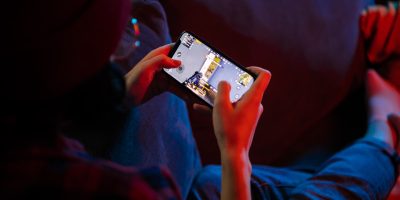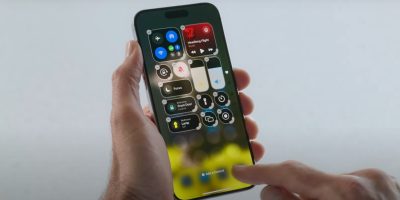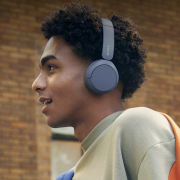Keys? Wallet? Cell phone? That’s the checklist most of us have when going anywhere. A little over a decade ago, mobile phones were a luxury. Today, it’s considered a meltdown-worthy disaster when you misplace it for a couple hours. And with the announcement of Google’s Android Open Phone Alliance, you can bet our love and reliance on these communication devices will soon grow leaps and bounds.
While mobile technology has advanced rapidly, it hasn’t kept up with the growth of computing. Although AOL held a stronghold on Internet connectivity for many years, their “monopoly” gradually collapsed, giving way to a highly competitive industry focused on getting users online. It wasn’t long before an actual Internet connection became a reasonably priced commodity, and the competitive focus shifted to companies and websites who could leverage the Internet to provide services and solve problems.
The rise of Napster illustrated the power of the Internet as a portal of sharing information freely. The music and file sharing program, created by a college student, quickly became the focus of the world as everything from full length albums to thousand dollar software packages were being swapped at no cost. And much like Google today, Napster never owned the products they provided or even paid for the bandwidth that sent the software and files from one computer to another. They were merely an intermediary who facilitated the connection between information seeker and information. And for all intents and purposes, Google is no different.
Google aimed to provide folks searching the net with the easiest, most effective way of finding the information they wanted. Their free, no-hassle, consumer-centric portal put them at the center of the search world. In doing so, they inherently became the gatekeeper between consumers and businesses. And while they use this strong relationship to drive business profits, they know who butters their bread, never sacrificing consumer usability for profits. The model has worked.
But mobile phone service providers are still stuck in the days of the old AOL and Compuserve. Instead of allowing their customers to open doors to the outside world, they keep them locked inside their proprietary gates, comforting the curious that it’s much better within the company walls. Apologies, but what’s inside your walls ain’t too great. While you spend day and night trying to build an exclusive empire for your customers, all we really wanted was to go visit our friend’s house. If you’re not getting the parallels here, I can’t say it any simpler: mobile phone service providers build content and options based on their self serving interests… NOT based on the ultimate needs and wants of consumers. But Google does.
So while these companies battle it out to provide better features, content and information that is only available on their platform, Google rides in on their white horse waving the consumer flag. Google understands, and ultimately these companies realize, that creating a single system allowing anyone to provide mobile content will make wireless devices infinitely more powerful. Because now, instead of single company’s producing applications for their customer base exclusively, you’re allowing absolutely anyone to create an application for everyone.
While the two largest cell phone providers (Verizon, AT&T) aren’t among the first in the alliance, eventually they will have to adopt Android. They’re incredible competitive advantage will still exist until Android is released – and perhaps they want to hold on until they’re forced to make the change. But once competing phones are available that allow you to have free access to an unlimited amount of tools, services and applications… the choice becomes obvious. I’m guessing they’ll make the announcement after the holidays to prevent any negative effect on this year’s sales for people that decide to hold out until next year’s Android phone enabled counterparts arrive.
Remember the music industry before Napster? It’s hard to remember the days of not being able to burn a Mix CD. Well, within a couple years, Android will make the current mobile industry look just as prehistoric. Napster was just ONE free service made possible by a freely navigated Internet. Once mobile phones face allow that same luxury, who knows how many applications could drastically impact our lives.
One thing is for sure… your phone is about to become a lot more than just your phone. Pretty soon, your checklist may look like this:
- Phone?










hopefully it will live up to the hype..
i think since Google is backing it, it will definitely be huge
i think its just kind of funny to think what would happen if a no-name company was promoting this, what kind of media attention it would get… probably none…
but yeah, i can’t wait!
I just want to say that I am waiting for the Android phones before I get another phone. I had it with Sprint. Sprint had a good phone, but them charging me nearly $700.00 bucks for two calls and sending the bill to collections rather than try to get it right had done it for me. I will go without a phone until I can get an Android phone. And I would not mind sending Google money for services; at least I get a whole lot for my buck. But Sprint, as Bart would say, Eat My Shorts!
Im from the future…..android rules the world…
hello fellow future man.